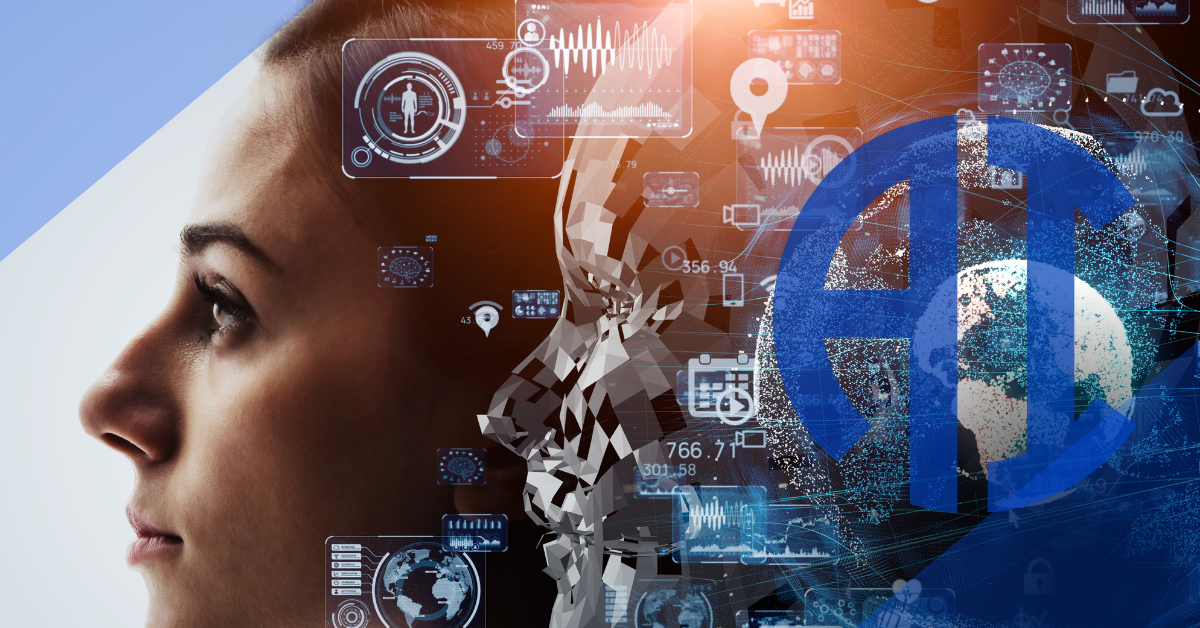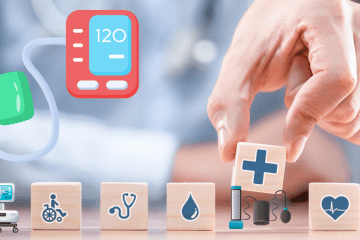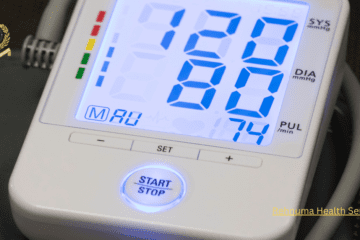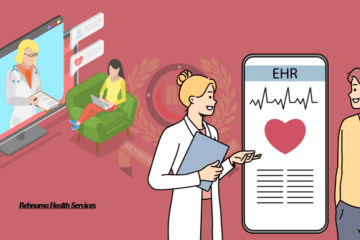| Table of Content( Benefits of Artificial Intelligence in Health care ) |
| Sr; | Benefits of Artificial Intelligence in Healthcare |
| 1 | Introduction |
| 2 | What is AI in Healthcare? |
| 3 | Enhanced Diagnostic Accuracy |
| 4 | Personalized Treatment Plans |
| 5 | Personalized Treatment Plans |
| 6 | Improved Patient Care and Monitoring |
| 7 | Streamlined Administrative Tasks |
| 8 | Drug Discovery and Development |
| 9 | Enhanced Data Security |
| 10 | Remote Healthcare Services |
| 11 | In conclusion |
| 12 | FAQs |
The healthcare industry is undergoing a revolutionary transformation, thanks to the rapid advancements in artificial intelligence (AI). The benefits of artificial intelligence in healthcare are numerous, from enhancing patient care to streamlining administrative tasks. This blog explores the significant impact of AI in healthcare and how it is shaping the future of medical services.
What is AI in Healthcare?
Artificial intelligence in healthcare refers to the use of complex algorithms and software to emulate human cognition in the analysis, interpretation, and comprehension of complicated medical and healthcare data. AI is designed to perform specific tasks such as diagnosing diseases, recommending treatments, and predicting patient outcomes more accurately and efficiently than traditional methods. By leveraging machine learning, natural language processing, and other AI technologies, healthcare providers can make more informed decisions, enhance patient care, and improve operational efficiency.
Benefits of Artificial Intelligence in Healthcare
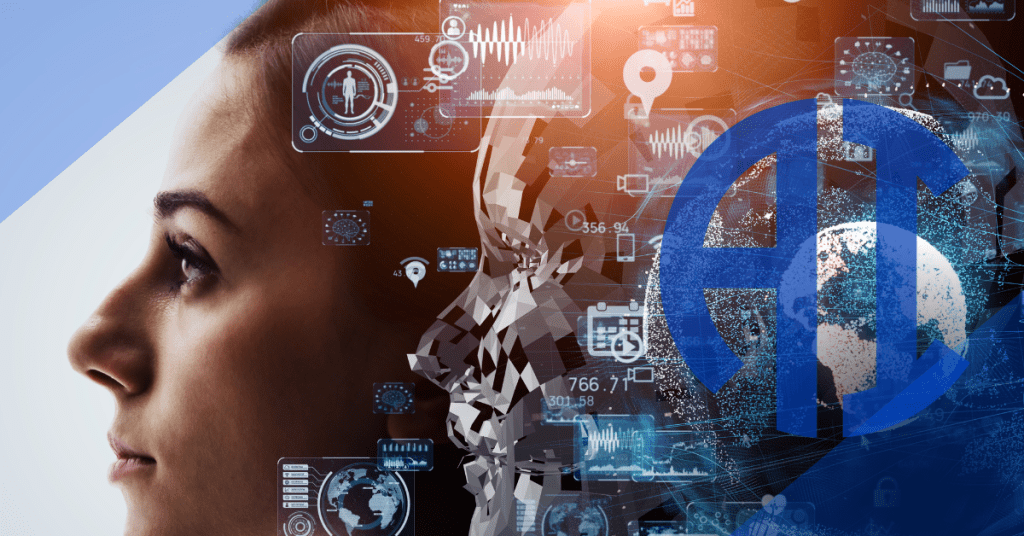
Enhanced Diagnostic Accuracy
One of the most profound benefits of artificial intelligence in healthcare is its ability to improve diagnostic accuracy. AI algorithms can analyze vast amounts of medical data, including imaging studies, lab results, and patient histories, to identify patterns that might be missed by human doctors. For instance, AI-powered tools are being used to detect early signs of diseases such as cancer, enabling timely and more effective treatments. AI systems can interpret mammograms, CT scans, and MRIs with high precision, reducing the margin of error and facilitating early intervention.
Personalized Treatment Plans
AI in healthcare allows for the development of personalized treatment plans tailored to individual patients. By analyzing data from various sources, AI can recommend the most effective treatment options based on a patient’s genetic makeup, lifestyle, and other factors. This personalized approach leads to better outcomes and reduces the trial-and-error process often associated with traditional treatments. For example, AI can help oncologists determine the best chemotherapy regimen for a cancer patient, optimizing efficacy and minimizing side effects.
Predictive Analytics
Predictive analytics is another significant benefit of artificial intelligence in healthcare. AI systems can predict potential health issues before they become critical by analyzing trends and patterns in patient data. For example, predictive models can identify patients at high risk of chronic conditions such as diabetes or heart disease, allowing for early interventions that can prevent or mitigate these conditions. Hospitals can use AI to predict patient admissions and allocate resources more effectively, enhancing overall care delivery.
Improved Patient Care and Monitoring
AI-powered devices and applications are transforming patient care and monitoring. Wearable devices equipped with AI can continuously monitor vital signs and alert healthcare providers to any abnormalities. This real-time monitoring allows for immediate responses to potential health issues, improving patient outcomes and providing peace of mind to patients and their families. For instance, AI-driven heart rate monitors can detect irregularities and notify doctors, preventing severe complications like heart attacks.
Streamlined Administrative Tasks
Administrative tasks in healthcare, such as scheduling, billing, and record-keeping, can be time-consuming and prone to errors. AI solutions can automate these tasks, reducing the burden on healthcare staff and allowing them to focus more on patient care. For example, AI-driven chatbots can handle appointment scheduling and patient inquiries, improving efficiency and patient satisfaction. AI can also automate the coding and billing process, reducing errors and speeding up reimbursement cycles.
Drug Discovery and Development
The process of drug discovery and development is traditionally long and expensive. AI is accelerating this process by predicting how different compounds will interact with various diseases. This capability not only speeds up the development of new medications but also reduces costs, ultimately making treatments more accessible to patients. AI can analyze biological data to identify potential drug candidates and predict their success rates in clinical trials, streamlining the research and development phase.
Enhanced Data Security
Healthcare data is sensitive and requires robust security measures. AI can enhance data security by detecting and responding to cyber threats in real-time. AI algorithms can identify unusual patterns in data access and usage, alerting administrators to potential breaches and ensuring patient data remains secure. AI-driven security systems can continuously learn and adapt to new threats, providing a proactive approach to cybersecurity.
Remote Healthcare Services
Telemedicine and remote healthcare services have gained prominence, especially in the wake of the COVID-19 pandemic. AI plays a crucial role in enabling these services by providing virtual assistants and diagnostic tools that can operate remotely. This expands access to healthcare services, particularly for individuals in remote or underserved areas. AI-driven platforms can facilitate virtual consultations, remote patient monitoring, and automated follow-up care, ensuring patients receive continuous and comprehensive healthcare.
In conclusion
The transformative benefits of artificial intelligence in healthcare are undeniable. By harnessing the power of AI, the healthcare industry can achieve unprecedented advancements that improve patient care, streamline operations, and drive medical research forward. The future of healthcare is bright, with AI at the forefront of this transformative journey.
FAQs
What are the key benefits of AI in healthcare?
AI in healthcare offers numerous benefits, including improved diagnostic accuracy, personalized treatment plans, enhanced patient monitoring, operational efficiency, and predictive analytics for disease prevention.
How does AI improve diagnostic accuracy?
AI algorithms can analyze medical images, lab results, and patient records more quickly and accurately than humans, helping to identify diseases at earlier stages and reducing the risk of misdiagnosis.
How does AI enhance patient monitoring?
AI-powered devices and applications can continuously monitor patients’ vital signs and health data, alerting healthcare providers to any significant changes in real-time, which allows for timely interventions.
What are the potential disadvantages of AI in healthcare?
Potential disadvantages include high implementation costs, data privacy concerns, potential job displacement, dependence on technology, and the risk of errors or biases in AI algorithms.
Are there concerns regarding data privacy with AI in healthcare?
Yes, AI systems require access to large amounts of personal health data, raising concerns about data security and patient privacy. Ensuring that this data is protected and used ethically is crucial.
How might AI lead to job displacement in healthcare?
The automation of routine tasks and the use of AI for diagnostics and treatment planning may reduce the need for certain healthcare roles, potentially leading to job displacement for some workers.
What are the risks associated with dependence on AI technology?
Overreliance on AI can lead to reduced human oversight, and if the technology fails or malfunctions, it could result in critical errors in patient care. It’s important to maintain a balance between AI and human judgment.
Can AI algorithms be biased?
Yes, AI algorithms can inherit biases from the data they are trained on, leading to biased outcomes. This can result in disparities in care and treatment if not addressed and corrected.
What are the financial implications of implementing AI in healthcare?
The initial costs of implementing AI technologies can be high, including expenses for purchasing equipment, training staff, and maintaining the systems. However, these costs may be offset by long-term efficiencies and improvements in patient care
“Experience compassionate and professional home nursing care with Rehnuma Health Services. Visit us at rhs.healthcare to book your service today!”

